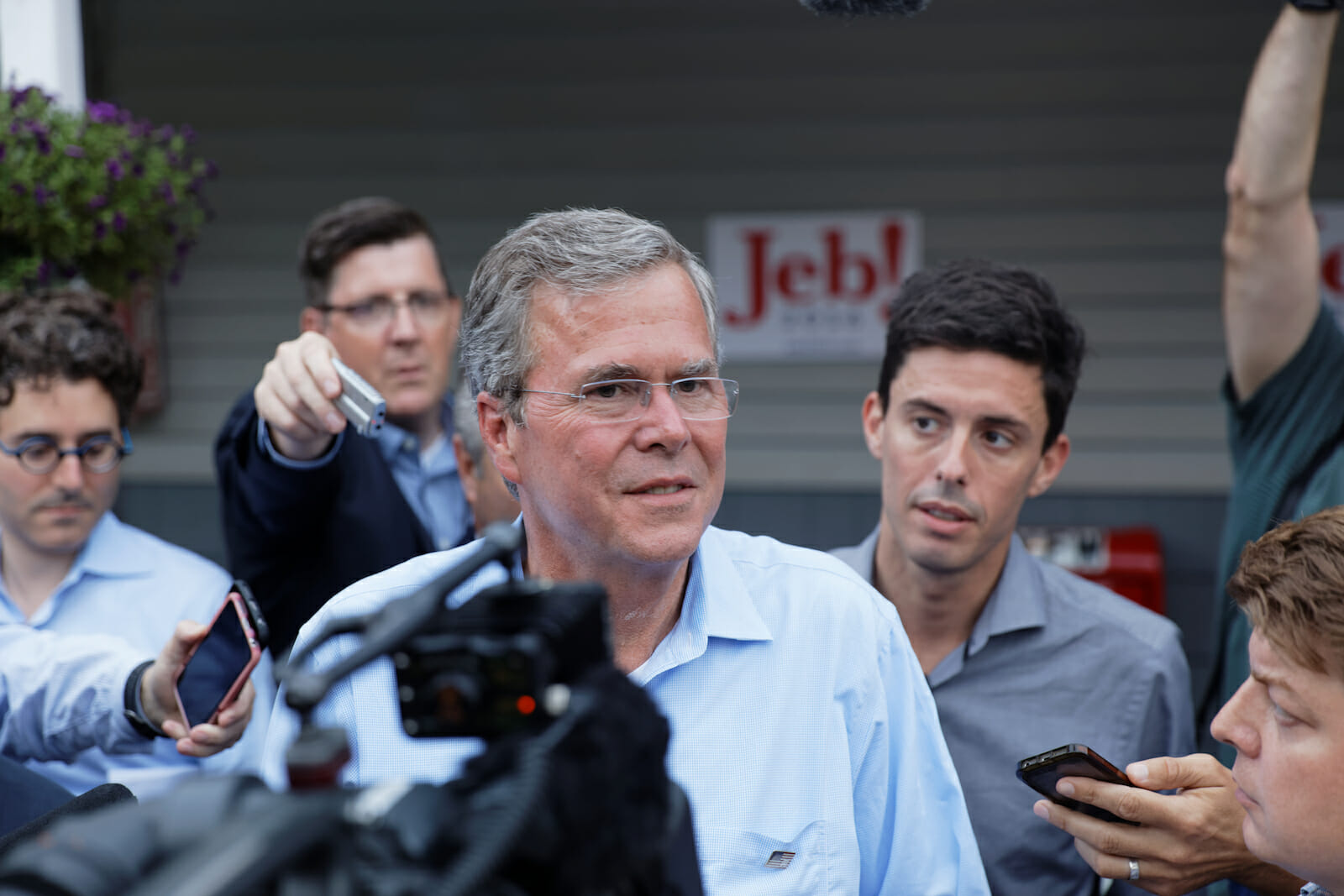
Politics
American Voters Should Put an End to its Political Dynasties
Republicans have now spoken on a third Bush presidency — they aren’t interested. As Hillary now seemingly barrels toward the Democratic nomination, it is worth Democrats considering whether they wish to follow the Republicans’ proven failed path. The ‘dynasty trap’ that has befallen many countries around the world, from Argentina to Pakistan. Thirty years after his father’s ouster as president, voters in the Philippines are even considering whether to include Ferdinand Marcos Jr. on the presidential ticket. Fifteen years after Bill Clinton stepped down from office, this is not the path America should be taking.
It is not so commonly known, but since 1789, almost 400 parent-child duos, and nearly 200 pairs of siblings have served in the U.S. Congress. And more than 700 families have had two or more members in Congress, even though the Founding Fathers of the United States warned against the perils of dynastic succession in American politics. In 1786, Thomas Jefferson wrote to George Washington that “…a hereditary aristocracy will change the form of our Government from the best to the worst in the world.” At that time, he called ancestral political rule a “scourge” that had condemned the overwhelming majority of France to a “cursed existence.”
Yet for some strange reason, many American citizens today seem to believe that because an individual may have come from a privileged background or a ‘political’ family, they should either have a right to attain elected office or will naturally do a better job than someone who isn’t ‘privileged’ or part of a political dynasty.
A January 2015 Washington Post-ABC News poll noted that only a third of voters polled would be less likely to vote for a Bush, and 14% less likely to vote for a Clinton, because of their surname.
Where did merit get lost in the equation, I wonder, and why do Americans fall for the dynasty trap? At least part of the answer is apathy. Voter turnout for the 2014 mid-term elections was just 36.4% — the lowest since 1940. At the beginning of World War II, just at the time when voters should have been motivated to ensure that fascism didn’t consume America, the voting public chose to remain politically apathetic. The current propensity of American voters to be so indifferent to political dynasties appears then to have something to do with a lack of interest in politics, the idea being to go with the devil that you know.
Apathy appears to have spread beyond politics, to knowledge more generally, with a substantial decline in the number of Americans who regularly read a newspaper or a book. A 2012 Pew Research poll noted that only 23% of Americans read a newspaper regularly, and a 2013 Huffington Post poll showed that 28% of American hadn’t read a book in more than a year. On this basis, how actively interested is the average American likely to be in politics or politicians? Not very.
What does history teach us about the wisdom of going the ‘easy’ route and voting for candidates from political dynasties? Does being part of such a dynasty impart one with greater political wisdom or a higher level of achievement? The Roosevelts and Kennedys greatly contributed to modern American liberalism, while the Bushes did the same for conservatism. But the longer historical record is far more mixed.
Our country’s first two experiences with political dynasties did not end particularly well, with the Adams and Harrison Administrations being largely considered failures. Franklin Roosevelt’s dramatic expansion of executive power resulted in a greater ability to promote economic reform and enhance military preparedness, but it also created a cult of personality and an enduring era of big government. The Kennedys were supremely devoted to public service and lofty liberal ambitions, but in the process, also to the acquisition of political power and the virtual elimination of competition in some areas of Massachusetts state politics for decades.
While Bill Clinton has made a significant contribution to solving some of the world’s more pressing problems through the Clinton Global Initiative, he and Hillary have become extremely wealthy since they left the White House – something that would surely not have been so easily achieved had they not ridden their own political coattails to fortune. George W. Bush’s legacy will likely be played out for decades to come as a result of the disastrous Iraq War and its lingering global consequences – which ultimately forced Jeb from the race.
With that all said, I hope that the American people will choose not to elect another Clinton to the presidency in 2016. Despite their political aloofness, the American people must know that political dynasties are not what the Founding Fathers intended, and that in this country, dynasties have not proven to be a net positive throughout the course of history. Moreover, given the current state of the world, what is clearly needed is some fresh thinking and the ability to move beyond the legacies of recent political history. At least it is my hope that, given the stakes at hand, the voting public has the common sense to become more engaged in the political process and consider the consequences of prolonging the Clinton, and for that matter any, dynasty in American politics going forward.

